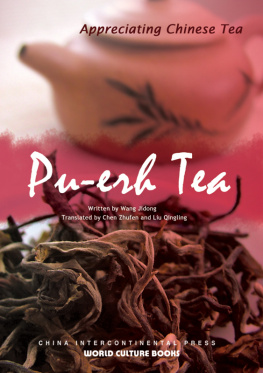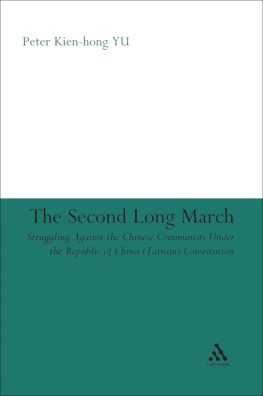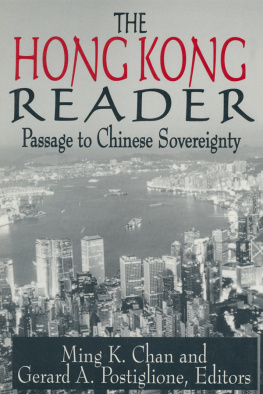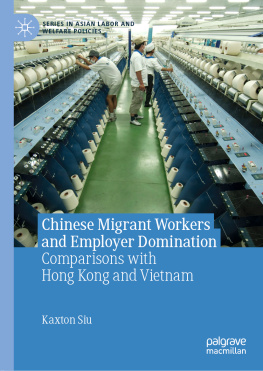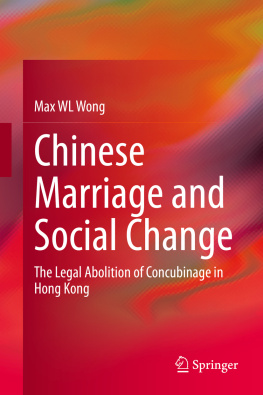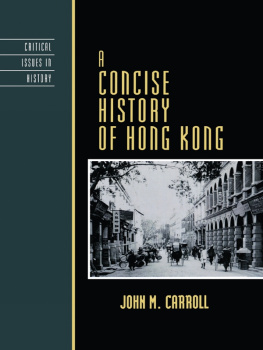Tongzhi
Politics of Same-Sex Eroticism in Chinese Societies
THE ROUTLEDGE PRESS
Human Sexuality
Eli Coleman, PhD
Editor
Tonghzi: Politics of Same-Sex Eroticism in Chinese Societies by Chou Wah-shan
Additional titles of related interest:
Male to Male: Sexual Feeling Across the Boundaries of Identity by Edward J. Tejirian
Queer Asian Cinema: Shadows in the Shade edited by Andrew David Grossman
The Sexual Construction of Latino Youth: Implications for the Spread of HIV/AIDS by Jacobo Schifter and Johnny Madrigal
Lady Boys, Tom Boys, Rent Boys: Male and Female Homosexualities in Contemporary Thailand edited by Peter A. Jackson and Gerard Sullivan
One of the Boys: Masculinity, Homophobia, and Modern Manhood by David Plummer
Strategic Sex: Why They Won't Keep It in the Bedroom edited by D. Travers Scott
A Sea of Stories: The Shaping Power of Narrative in Gay and Lesbian CulturesA Festschrift for John P. De Cecco edited by Sonya L. Jones
The Bear Book II: Further Readings in the History and Evolution of a Gay Male Subculture edited by Les Wright
Tongzhi
Politics of Same-Sex Eroticism in Chinese Societies
Chou Wah-shan
First Published by
The Haworth Press, Inc., 10 Alice Street, Binghamton, NY 13904-1580
Published by Routledge
711 Third Avenue, New York, NY 10017
2 Park Square, Milton Park, Abingdon, Oxon, OX14 4RN
2000 by The Haworth Press, Inc. All rights reserved. No part of this work may be reproduced or utilized in any form or by any means, electronic or mechanical, including photocopying, microfilm, and recording, or by any information storage and retrieval system, without permission in writing from the publisher.
Cover design by Jennifer M. Gaska.
Cover photos and collage by Stanley Lai.
Library of Congress Cataloging-in-Publication Data
Chou, Wah-shan, 1962-
Tongzhi: politics of same-sex eroticism in Chinese societies / Chou Wah-shan.
p. cm.
Includes bibliographical references and index.
ISBN 1-56023-153-X (hard : alk. paper) - ISBN 1-56023-154-8 (soft : alk. paper)
1. HomosexualityChina. I. Title.
HQ76.3.C2 C48 2000
306.76,6,0951-dc21
00-031912
Publisher's Note
The publisher has gone to great lengths to ensure the quality of this reprint but points out that some imperfections in the original may be apparent.
CONTENTS
ABOUT THE AUTHOR
Dr. Chou Wah-shan taught at the University of Hong Kong. He has published more than twenty Chinese books, mostly on sexuality and gender politics. He is now living in China and doing research the Mosuo culture, the matrilineal culture located in Southwestern China.
Introduction
The Cultural Politics of Tongzhi
This book examines the cultural specificity of same-sex eroticism in Chinese societies, in which the family kinship system, rather than an erotic object choice, is the basis of a person's identity. I will argue for the need to build up indigenous tongzhi politics that need not reproduce the Anglo-American experiences and strategies of lesbigay liberation. Throughout this book, I will use lesbigay when referring to lesbians, bisexuals, and gay people in the West, PEPS when referring to People who are Eroti-cally attracted to People of the Same sex in traditional (defined as pre-twentieth century) Chinese societies, and tongzhi when referring to contemporary Chinese lesbigay people. Although the tongzhi perspectives have relevance for Chinese living in different societies, I confine my analysis to tongzhi living in Taiwan, mainland China, and Hong Kong. In the context of same-sex eroticism in China, I would use the term homosexuality only as an adjective and not as a noun (i.e., homosexual) because the concept of homosexual as a different type of person did not exist in Chinese language and culture until the 1980s, and even now it is rarely used as a noun. The term gay will be italicized when it refers to both sexes and includes bisexuals.
Tongzhi is the most popular contemporary Chinese word for lesbians, bisexuals, and gay people. The word, which has very positive historical references, was a Chinese translation from a Soviet communist term, comrade, which refers to the revolutionaries who shared a comradeship. The term was first adopted by Chinese in Republican China, and then taken both by the Communist and Nationalist Parties to refer to comrades struggling for the communist/nationalist revolution. Tong literally means same/homo, which is the Chinese word for homo(sexual), and zhi means goal, spirit, or orientation. The most popular association of tongzhi is probably the famous statement by the national father of modern China, Sun Yat-sen: The revolution has not succeeded, tongzhi still have to fight. After 1949, tongzhi (comrade) became a friendly and politically correct term by which to address everyone in China, as it refers to the most sacred ideal of a classless society where sisters and brothers share a selfless vision of fighting for the socialist collective interest. Since the opening up of the market economy of China in 1978, the term has lost its popularity, as it represents the outdated era of communism, which is now giving way to a more capitalistic and individualistic way of using personal names or titles such as Mr./Ms. In the 1990s, tongzhi (comrade) is used in China only in an official context and by people of older generations.
The term tongzhi was appropriated by a Hong Kong gay activist in 1989 for the first Lesbian and Gay Film Festival in Hong Kong. The Chinese term tongzhi was used, as the organizer was keen to employ an indigenous representation of same-sex eroticism. Homosexual was dropped as it was a medical term denoting sickness and pathology. Even positive categories such as gay, lesbian, and queer are Anglo-Saxon constructs with specific histories that fail to capture the indigenous features of Chinese same-sex relationships. The reappropriation is widely accepted by the community for its positive cultural references, gender neutrality, desexualization of the stigma of homosexuality, politics beyond the homo-hetero duality, and use as an indigenous cultural identity for integrating the sexual into the social. Within a few years, it became the most common usage in Hong Kong and Taiwan, though the English term gay is still commonly used, sometimes interchangeably with tongzhi.
Though tongzhi was appropriated by a Hong Kong activist, it has an interesting historical resonance as far back as Yi Jing (The Book of Changes) around 3,000 years ago. The thirteenth hexagram (a sort of diagram) in Yi Jing is tongren (fellowship). This hexagram states, It is by extending Fellowship even to the fields that one prevails. Thus it is fitting to cross the great river and fitting for the noble man to practice constancy (Lynn, 1994: 216). The translator of Yi Jing made a detailed commentary on tongren:
The exercise of strength here should not be done through military force but through the use of civility and enlightenment so one's heart and mind here should not be bound by particularism. Instead one thoroughly identifies with the great community, so when one goes out of his [sic] gate, he [sic] treats all with fellowship then one who is soft and yielding in substance but abides in the Mean will gain the support of the masses, but one who insists on rigidity and employs inflexible methods will not win a mass following. (Lynn, 1994: 116, 117,220 221)


